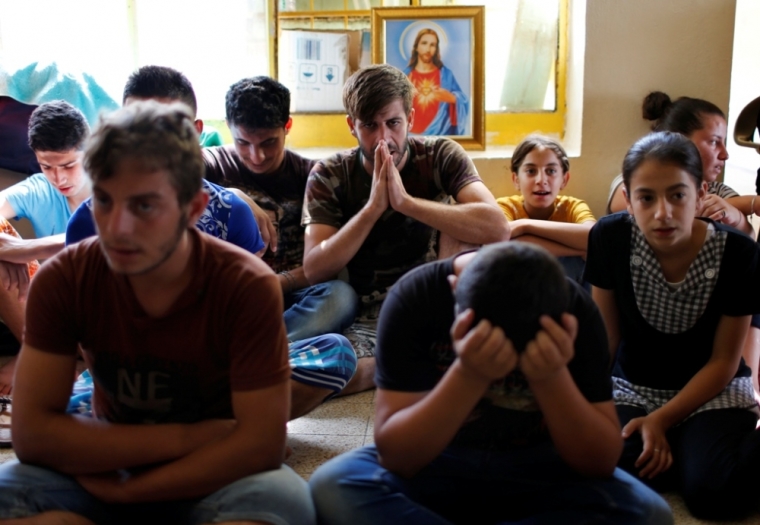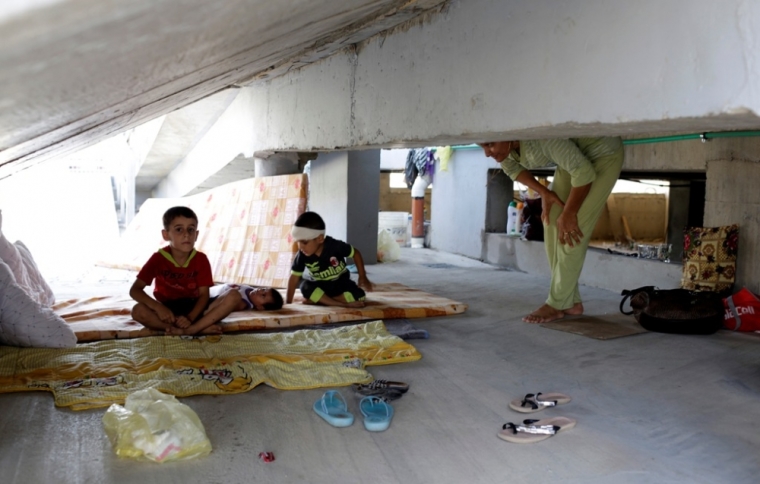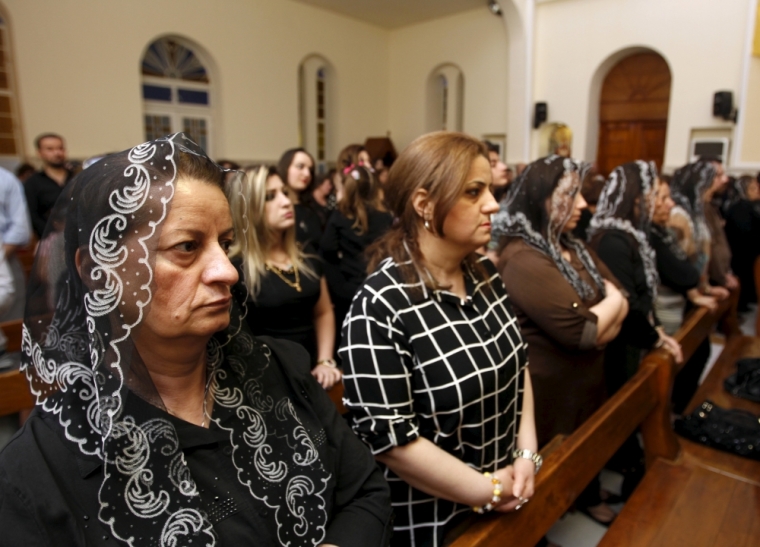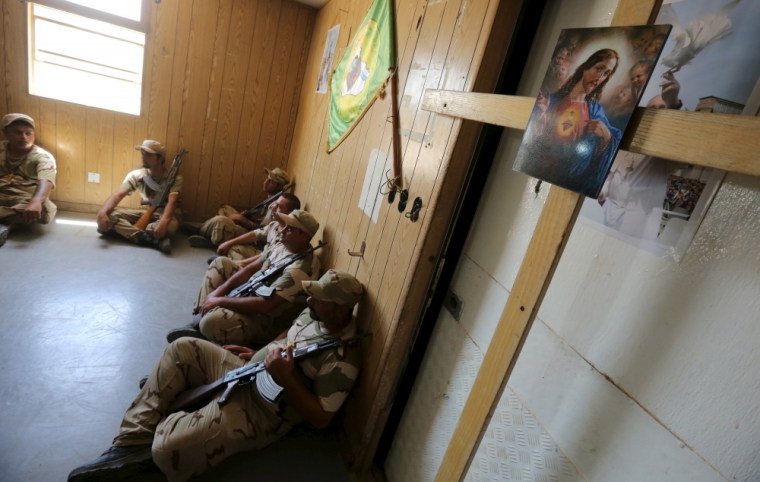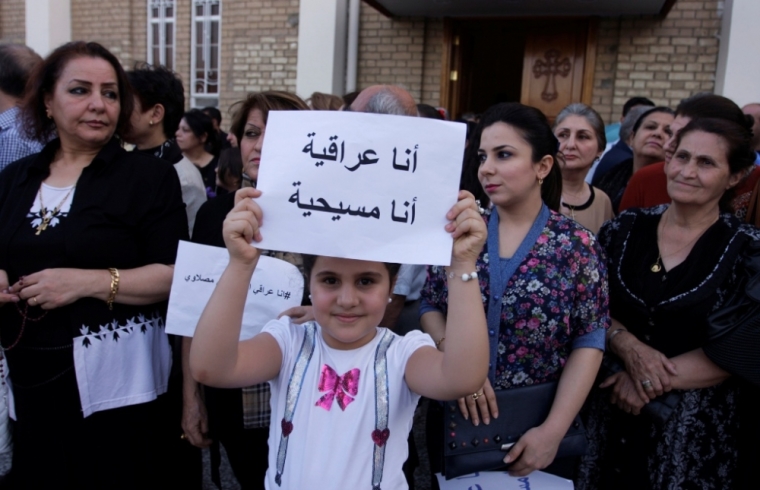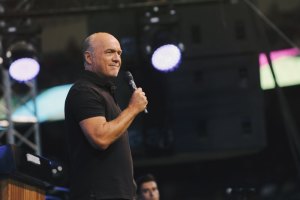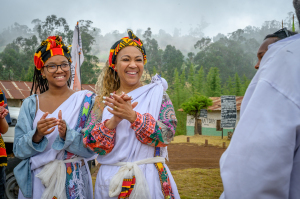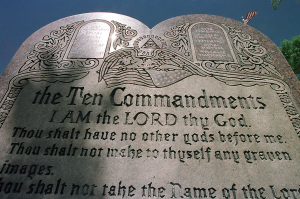Christians Angry US Gov't Too Busy Looking for Water on Mars to Save Them From ISIS, Iraqi Priest Says
WASHINGTON — A Chaldean priest who oversees hundreds of Iraqi Christian refugees displaced by the Islamic State says Iraqi Christians blame the United States government for not protecting them and their ancient communities from being conquered by the barbaric terrorist group.
Father Douglas al-Bazi, who runs the Mar Elias Church and displacement center in Ainkawa, is in the U.S. this week to raise awareness about the plight facing hundreds of thousands of Iraqi Christians who are forced to live as refugees after IS [also known as ISIS or ISIL] overtook their homes and villages in the Nineveh plains of Iraq in 2014.
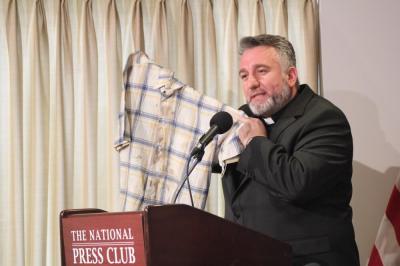
Bazi, who is originally from Baghdad and was kidnapped from his church and tortured for days by Islamic militants in 2006, shared his story with a group of reporters and writers in Washington, D.C. on Tuesday and discussed the Iraqi Christian community's aggravation with the U.S. government.
While President Barack Obama was calling IS the "JV team" and ignored "very, very clear" warnings about the rise of dangerous radical extremists groups in Iraq following the U.S. military's complete withdrawal from the country in 2011, IS seemingly had little trouble conquering Iraq's second largest city, Mosul, and large swaths of territory in Northern Iraq in the summer of 2014.
As IS conquered Christian and Yazidi towns in Northern Iraq, many Yazidis and Christians were forced flee their homelands or risk being killed for their faith. It wasn't until IS began making its way toward the Kurdish town of Erbil later that year that the U.S.-led coalition finally started its airstrike campaign against the militant organization.
Bazi explained that the timing of the airstrike campaign has left many religious minority refugees wondering why the U.S. did not act sooner to save their own villages.
"When the Islamic State attacked, no one took action until the Islamic State arrived to Erbil. [It wasn't until then] when the Americans started bombing the Islamic State," Bazi said in broken English. "So the Yazidis and Christians, they ask why America just helped those people and they forget about us? Also another group called Shabak, they had the same feeling."
As it emerged in September 2015 that the National Aeronautics and Space Administration had discovered water on Mars, many around the world celebrated the discovery. However, that discovery left suffering Iraqi Christians families who are living in 10-by-15-foot iron containers in the Mar Elias displacement center with a sour taste, Bazi said.
"My people, they [ask why] NASA can find water on Mars but they were not able to find the Islamic State [when] they were just in the middle of desert by hundreds, [with] Toyota cars everywhere," Bazi explained. [They were] just in the middle of the desert and [the U.S.] was not able to find them by satellite. This is a disappointment."
Although the U.S. State Department designated IS' treatment of Christians and others in Iraq and Syria as a genocide in March, the U.S. has done very little since then to provide help for the suffering Christian refugee communities in Erbil, Bazi said.
"My people blame America for what has happened. [The] genocide [designation] was the first time the Americans said, 'We care,'" Bazi stated. "But caring means more than words. It means taking action for my people."
A humanitarian source close to the situation in Iraq said that although millions of dollars in foreign government aid is being sent, very little to none of that money is going to help Christians and other religious minorities because the money is being funneled through the Iraqi government and not given directly to the agencies and organizations providing for the refugees.
The source added that most of the funds used to help support the Christian refugees are being funneled through churches and dioceses who are working with them directly.
Additionally, Christians in Iraq and Syria are largely overlooked for resettlement in the U.S. The U.S. relies heavily on resettling refugees who register with United Nations refugee camps. However, most Christians avoid registering with U.N. camps due to fear of being persecuted by Muslims.
Bazi added that once IS is defeated, he doesn't believe many Christians will want to go back to their homes and villages, knowing what has happened in those places.
"For sure, our people are not ready to go back," Bazi said. "Maybe they go back for one reason — just to sell their houses."
In order to give the Christians and other religious minorities confidence that things will be different in a post-IS Iraq, Bazi stresses that the Constitution that was passed in 2005 during the U.S. occupation must be changed.
"Our constitution actually it is Part 2 of Quran," Bazi argued. "The Western country when they looked at our Constitution, they read just the first part, that it is based on democracy. They say, 'Oh yea, that's good,'" Bazi explained. "But they ignore the other point [that states] you cannot have any law against Shariah and Quran. That makes me forget about the first part [about democracy]."
The Iraqi constitution does in fact state in Section 1, Article 2: "No law may be enacted that contradicts the established provisions of Islam."









